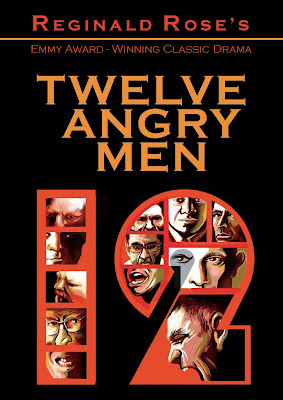12 Angry Men
Leadership Curriculum: Influence Without Authority
12 Angry Men is a 1957 courtroom drama written by Reginald
Rose and directed by Sidney Lumet.
According to the American Constitution, the verdict is
passed on the basis of whether there is a ‘reasonable doubt’ in the guilt of
the accused. In the movie, we see an 18 year old boy from a slum who has
allegedly stabbed his father to death. The court proceedings are over and the
12 member jury is now to decide by discussions based on reasons, whether he is
guilty or not. Also, the jury’s decision is to be unanimous. In case of a hung
jury, a new jury would be called for.
An initial voting is done to know how many members feel
whether the boy is guilty and how many members not. 11 members vote “guilty”
and one member “not guilty” saying that he is not sure of it. He proposes to
discuss further, saying that it is the life of a person that they are dealing with
and that they owes him some time. To this, many members disagree and what we
see next is one of the core values of the fellowship, “Influence Without
Authority”.
All 12 members are from various backgrounds with various mind-sets
and prejudices. Some members take the matter so personally that people from the
slums are quintessentially like that, without any morals or value for anything.
One of the members is so adamant and sadistic that he doesn’t want the boy to ‘slip
through his hands’. But as members of the jury, reason is to be given
importance, rather than egos or emotions. This is what many members lack in and
the protagonist influences them think critically upon the matter and then come
to a conclusion.
Insights:
1)
Individualism, radical thinking and reasoning
always find its way through. The movie inspires to stand up on one’s own ideals,
irrespective of the variety and variability of the barriers ahead.
2)
In and around us, we see cases of ego overpowering
the truth. Man hallucinates his own reality/realities and places matters
accordingly in the hallucinated reality/realities, as a result of his ego.
3)
An objective mind and the will to act is what it
takes to bring about change.
P.S: “Ego overpowers truth”. There’s a character who stays
till the end, who holds that the boy is guilty, not concerning any facts. He
wants him to be sentenced to death, not on the basis of evidences, but on the
basis of his conceptions/misconceptions. The first time I saw this movie was
two years back and then I had a huge dislike for this person so full of scorn.
But now when I see the movie, I find myself empathising with him. He had had a
bad quarrel with his 16 year old son two years back, which resulted in the son
hitting him and leaving the house, not to return. It is his personal trauma
that abstains him from thinking based on reason.




Comments
Post a Comment